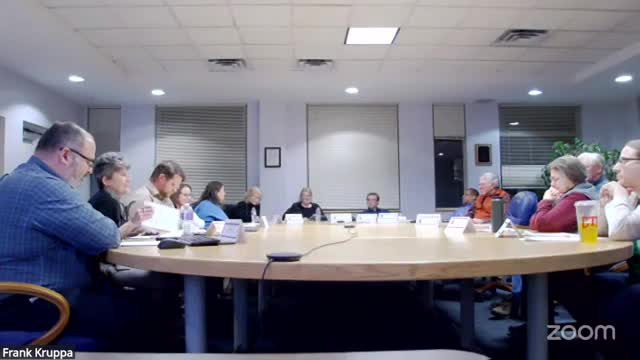Deputy commissioner outlines governor’s mental-health budget proposals affecting counties
Get AI-powered insights, summaries, and transcripts
Subscribe
Summary
Harmony S. Rivera, Deputy Commissioner, summarized mental-health provisions in the governor’s executive budget including a 2.1% targeted inflationary increase, funding for minimum-wage impacts, changes to involuntary-commitment language, expanded assisted outpatient treatment, and investments in peer and street-based services.
Harmony S. Rivera, Deputy Commissioner, briefed the board on highlights of the governor’s executive budget proposals related to mental health, emphasizing that the executive proposal begins a legislative process and is not final.
Rivera summarized key proposals: a 2.1% targeted inflationary increase for eligible providers; $53 million in new funding to address minimum-wage impacts for workers in certain systems; proposed clarifications and procedural changes to parts of New York’s commitment laws; expanded funding for assisted outpatient treatment (AOT, commonly known as Kendra’s Law); and investments in peer services, hospital-based peer bridging, street medicine/psychiatry as part of Safe Oxygen Supports (SOS) teams, and clubhouses and youth-focused programs.
Rivera said, “The first 1 is a whopping 2.1% targeted inflationary increase for eligible OASIS, OPWDD, and OMH agencies to support competitive wages.” She described the AOT proposals as an effort to expand access and county funding for services for people with high needs and said the state has recently increased oversight and documentation requirements for AOT programs.
On changes to commitment practice, Rivera said the language in the executive proposal appears aimed at clarifying hospital evaluators’ duties and improving communication among hospitals, community providers and families to strengthen discharge planning. She noted the state has worked with providers on confidentiality and documentation tools to improve transitions and reduce avoidable hospital readmissions.
Rivera also described pilot models the governor proposes to expand, including street medicine/psychiatry and hospital peer-bridger programs; she said initial pilots typically start in larger communities but could be made available to smaller counties later.
Rivera closed by noting that the executive budget proposals will undergo legislative review, hearings and possible revision; she offered to circulate a written summary to board members for awareness and follow-up during the budget process.
